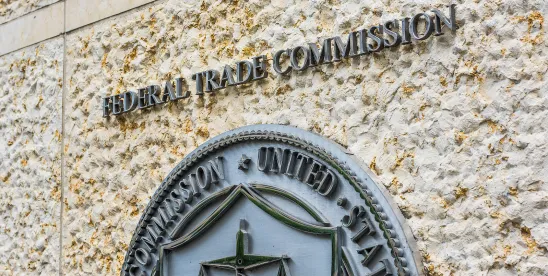On June 5, 2024, the US District Court for the Western District of North Carolina denied the Federal Trade Commission’s (FTC) petition to enjoin Novant Health Inc.’s (Novant) acquisition of Community Health Systems Inc.’s (CHS) Lake Norman Regional Medical Center (LNR) and Davis Regional Psychiatric Hospital (Davis), thereby allowing the acquisition to proceed while the FTC conducts its administrative process to consider the lawfulness of the transaction.
IN DEPTH
WHAT HAPPENED
- In February 2023, Novant and CHS entered into an asset purchase agreement whereby Novant would acquire LNR, Davis and related assets from CHS.
- Following an extended investigation, in January 2024, the FTC filed an administrative complaint against the proposed transaction, alleging it would significantly increase concentration in the market for general acute care inpatient services sold to commercial insurers and their health plan members in the Eastern Lake Norman Area. The FTC also contended the proposed transaction would eliminate head-to-head price and non-price competition between the parties.
- The FTC sought to enjoin the transaction from closing while it litigated the merits of its antitrust claims in an administrative proceeding scheduled to begin June 26, 2024. The district court denied the preliminary injunction.
THE DECISION
- Pursuant to Section 13(b) of the Federal Trade Commission Act, courts may issue a preliminary injunction “[u]pon a proper showing that, weighing the equities and considering the Commission’s likelihood of ultimate success, such action would be in public interest.”
- The district court recognized the FTC’s defined product markets and geographic markets and acknowledged that share levels exceeded those in the Merger Guidelines necessary to establish a presumption of the proposed transaction’s illegality.
- However, the court emphasized the public equities and unique facts that led it to conclude that granting a preliminary injunction would not be in the public interest. In particular, the court noted the likely immediate closure by CHS of one of the hospitals following a grant of an injunction. It also focused on the likely continued decline in competitive significance of the other CHS hospital during the pendency of the FTC litigation due to new entry by another competitor and a change in government certificate of need regulations. These developments, the court reasoned, were likely to increase competition for outpatient services and further weaken the target hospital.
WHAT THIS MEANS
- Denial of the injunction allows the parties to proceed to closing their transaction. The temporary restraining order that currently prevents closing will expire five business days after the date of the court’s ruling.
- The FTC may decide to appeal the decision and may also attempt to move for an emergency injunction pending such appeal.
- The court’s decision does not stop the FTC from continuing to pursue its administrative challenge of the transaction. In prior cases where the FTC has failed to obtain a preliminary injunction, it has later abandoned its administrative challenge, but it is not yet clear what the FTC will choose to do here.
- The court’s decision is tied closely to the specific facts of this case and is unlikely to signal a major change in how the FTC handles hospital merger cases in the future. The decision may, however, offer some guidance on how parties may convince a federal court judge that the issuance of a preliminary injunction to block a hospital merger or acquisition is against the public interest.
- Unlike denials of preliminary injunctions in past hospital merger cases, the court did not question the adequacy of the FTC’s prima facie case, for example by disputing its market definitions. Instead, the court focused on the loss and further erosion of healthcare options that would occur immediately and during the pendency of litigation if the injunction issued. It also noted the defendants’ commitments not to raise rates and to immediately begin improvements at both target hospitals. Such improvements included restoring previously closed services, recruiting specialists, raising nurse salaries and increasing nurse staffing, and implementing a new electronic medical records system. Given such facts, the court concluded that the injunction posed a greater and more immediate harm to competition than allowing the transaction to proceed.
- The combination of equitable factors that swayed the court in this case may well be unique, as the court itself suggested. But to the extent that parties in future mergers can show that 1) issuance of a preliminary injunction will trigger immediate harms (e.g., like the closure of a hospital), 2) denial of the injunction will enable the rapid realization of pro-competitive benefits (e.g., the expansion and improvement of services and higher pay for nurses and other workers ) and 3) failure to issue the injunction will not immediately lead to theoretical harms predicted by the FTC (e.g., rate increases), they may be able to benefit from a similar balancing of the equities from future courts and force the FTC to decide whether to pursue a case through its administrative process.






 />i
/>i

